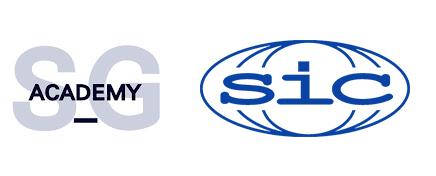External auditor for certification of management systems for educational organizations (ISO 21001, ISO 19011, ISO/IEC 17021)
This online course provides the necessary knowledge and skills for conducting an external audit of an educational organizations management system (EOMS), based on the ISO 21001:2018, ISO 19011:2018, ISO 17021-3:2017 (requirements for bodies providing audit and certification of EOMS).
Participants will gain knowledge of various components of an educational organizations management system, including: principles for educational organizations, focus on learners and other relevant interested parties, leadership, management of risks and opportunities, competence requirements for personnel, educational resources, design and delivery of educational services, evaluation of learning outcomes, feedback and monitoring of learner satisfaction, management review, and continual improvement. In addition, the course covers the tasks and roles of external auditors in the process of planning and conducting audits, preparing reports, and planning and monitoring actions based on audit results.
Special attention is paid to the requirements of ISO 17021-3:2017, which establishes principles and requirements for the competence, consistency, and impartiality of bodies providing audit and certification services for educational organizations’ management systems.
To facilitate better understanding, all course slides are narrated. Real-world case studies from the educational sector will help participants apply theory to practice more effectively. The learning material is divided into modules, making the learning process even more efficient.
This course is an essential step for those who aspire to become a highly qualified external EOMS auditor and make a significant contribution to sustainable development and the improvement of educational service quality at an international level.
Duration
50 hours
Language
English/Ukrainian
Format
100% online
Objectives
- Understand the principles of implementing an Educational Organizations Management System (EOMS) in accordance with the requirements of ISO 21001:2018.
- Gain a full understanding of the concepts, approaches, methods, and techniques necessary for effective EOMS management, considering its specifics.
- Acquire knowledge in identifying risks and opportunities related to the EOMS, including risks to the educational process and learner satisfaction.
- Understand the interrelationship between the EOMS and compliance with the requirements of various interested parties of the organization, specifically learners, educators, and regulatory bodies.
- Develop the knowledge and skills necessary for consulting educational organizations on best practices in quality management and conducting external audits.
- Familiarize oneself with all stages of preparing and conducting an external EOMS audit, including planning, execution, reporting, and monitoring.
- Acquire the necessary knowledge to manage an EOMS audit team.
- Understand the operation of an EOMS in compliance with ISO 21001:2018, ISO 19011:2018, ISO 17021-3:2017, and SIC rules.
- Improve the ability to analyze the internal and external environment of an educational organization and make decisions within the context of the educational organizations management system.
Target audience
The target audience for the “External Auditor of Educational Organizations Management System ISO 21001” course includes:
- External Auditors: Professionals who conduct or plan to conduct management system audits in educational organizations.
- Project Managers and Consultants: Individuals who wish to master the audit process for educational organizations’ management systems to provide relevant services.
- EOMS Implementation Team Members: Employees of educational institutions involved in the development, implementation, and maintenance of an educational organizations management system.
- Professionals Seeking In-depth EOMS Knowledge: Any specialists interested in a thorough understanding of ISO 21001, ISO 19011, ISO 17021-3 standards, and SIC rules within the context of the educational sector.
- Specialists Involved in Daily EOMS Process Support: Employees responsible for the operation and continuous improvement of processes in educational organizations in accordance with ISO 21001 requirements.
- Students of Relevant Faculties: Future specialists in quality management, auditing, or educational management who seek to gain practical knowledge and a competitive advantage.
Document on completion
Certificate of external auditor of the management system of educational organizations, entered in the International SIC Register
Thematic plan
1 Management Systems for Educational Organizations ISO 21001:2018.
2 Audit Procedures ISO 19011, ISO/IEC 17021, SIC Rules.
The program is designed for 50 hours, including time for studying theoretical material and passing tests.
Objectives
Course program: External auditor for certification of management systems for educational organizations (21001)
|
|
|
Hours |
|
І module |
Management systems for educational organizations ISO 21001:2018 |
18 |
|
1 |
Introduction to the MSEO |
3 |
|
2 |
Context of the organization as a fundamental basis of the MSEO |
2 |
|
3 |
Leadership and Policy development in the sphere of educational organizations |
2 |
|
4 |
Risk-based planning of the MSEO |
2 |
|
5 |
Resources and documentation of the MSEO |
2 |
|
6 |
Operational activities and processes of the MSEO |
4 |
|
7 |
Evaluation and analysis of the effectiveness of the MSEO |
1 |
|
8 |
Corrective actions and improvements to the MSEO |
1 |
|
|
Testing |
1 |
|
ІІ module |
The procedure for conducting audits ISO 19011, ISO/IEC 17021, SIC Rules |
32 |
|
1 |
SIC — an international association of certification bodies |
1 |
|
2 |
Audit: objectives and criteria |
2 |
|
3 |
Classification of audits and related standards |
2 |
|
4 |
Terms and definitions |
1 |
|
5 |
Audit principles and their practical implementation |
4 |
|
6 |
Attestation procedure, requirements for auditors |
4 |
|
7 |
Pre-certification measures and sampling application |
4 |
|
8 |
Audit planning |
2 |
|
9 |
Primary certification: I and II stages of the audit |
2 |
|
10 |
Audit conducting |
2 |
|
11 |
Certification decision |
2 |
|
12 |
Support: supervisory and special audits, recertification |
1 |
|
13 |
Suspension, cancellation, reduction of certification scope |
1 |
|
14 |
Appeals and claims |
1 |
|
|
Testing |
1 |
|
|
Case-reviews |
2 |
|
|
Hours total |
50 |
